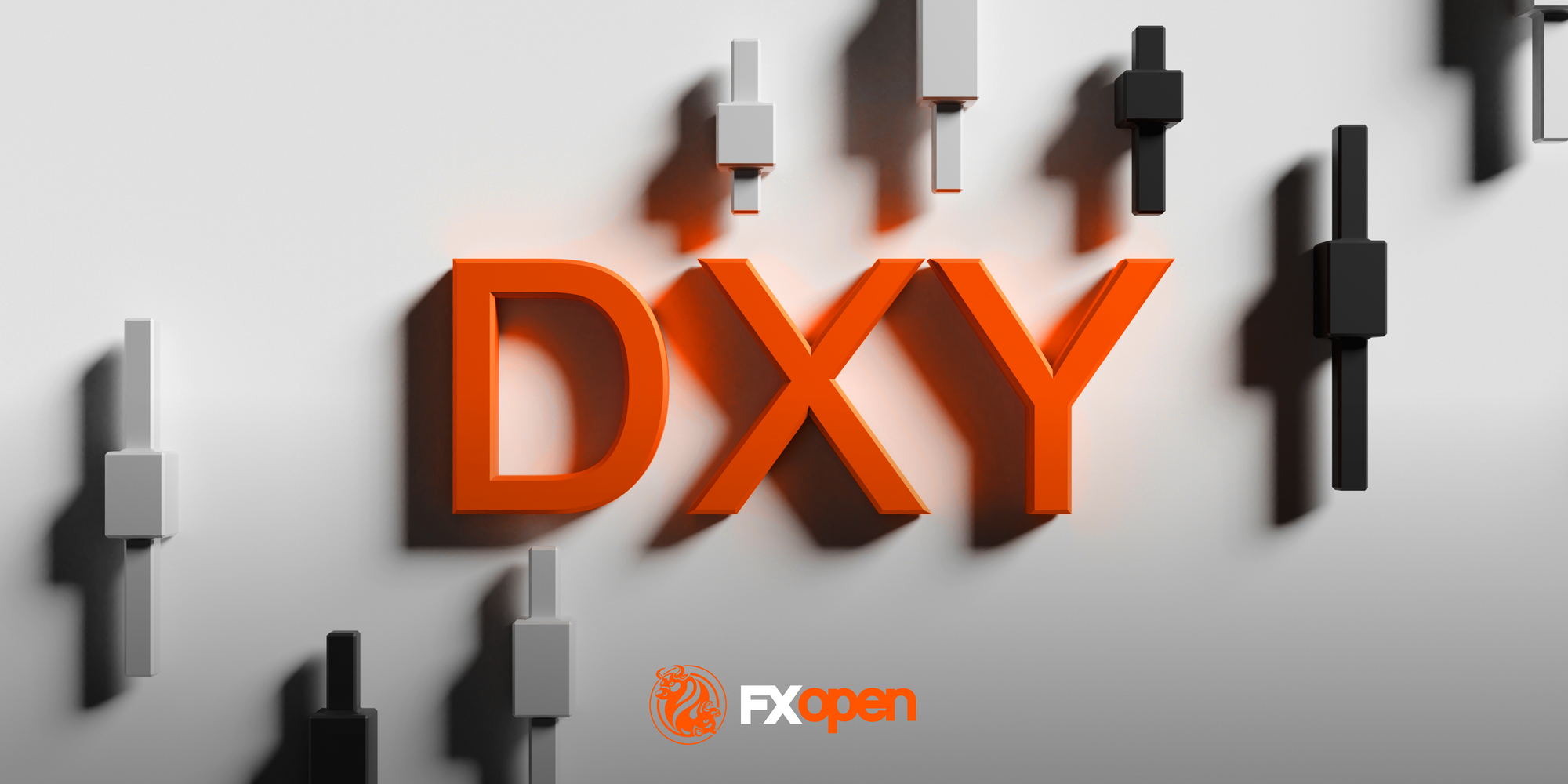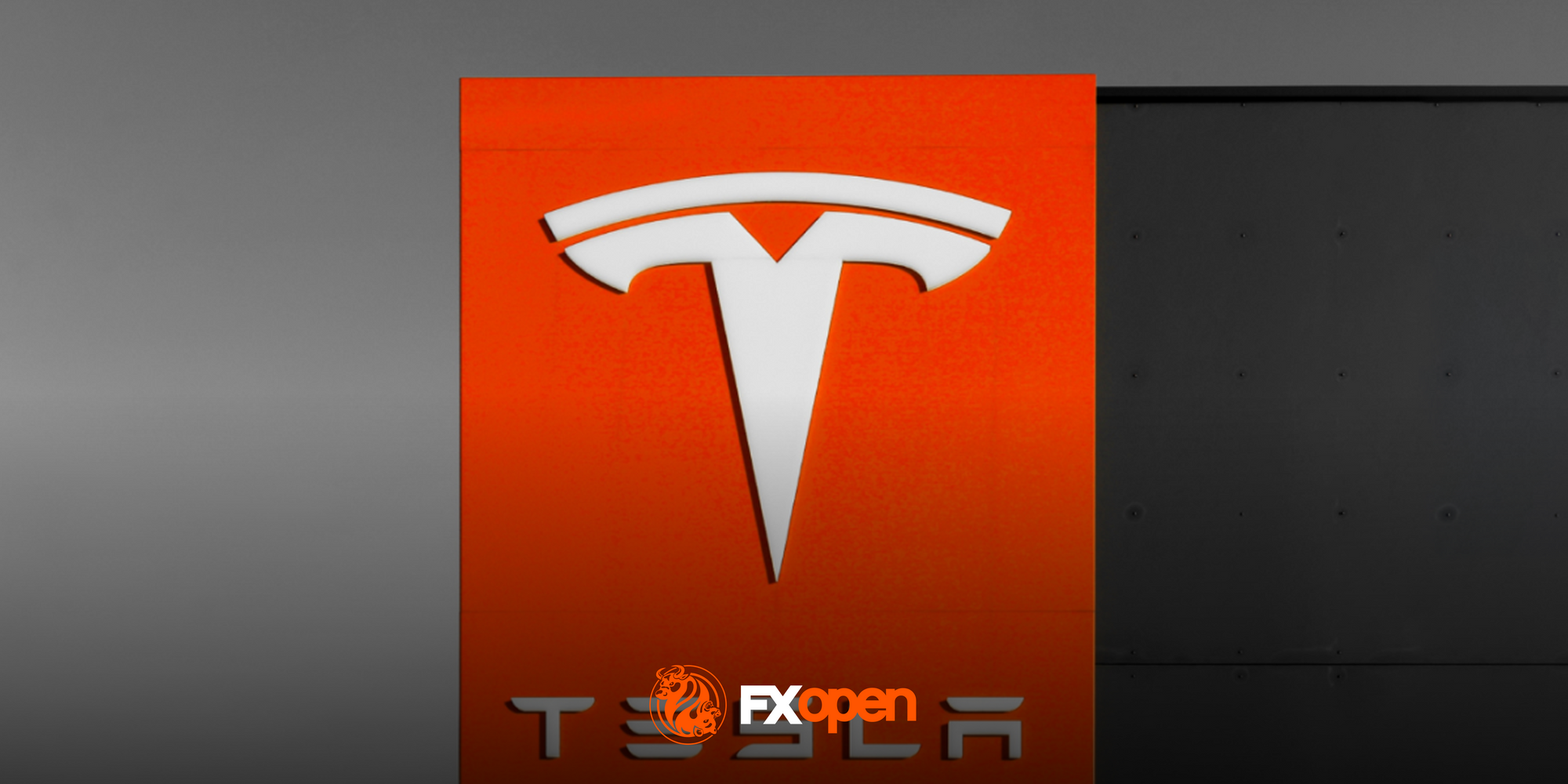FXOpen

Tesla, a titan of the electric vehicle industry and a symbol of disruptive innovation led by its enigmatic CEO, Elon Musk, has always been a subject of immense market volatility. Its stock, often compared to giants in the tech sector like Alphabet (Google), Apple, and Facebook, is known for its sharp fluctuations, sometimes defying conventional norms for a publicly listed big-cap company.
While the recent downward trajectory of Tesla's stock might not be entirely surprising, given its historical volatility, it is essential to analyse the factors driving this decline and the broader implications for the electric vehicle and autonomous driving market.
Understanding Tesla's Recent Performance
As of the latest New York trading session, Tesla's stock closed at $238.70, marking a 1.63% decline from the opening price. However, the more substantial concern is the stock's remarkable 17.8% decline over the past 30 days.
Such fluctuations are not unfamiliar to Tesla investors, considering the company's notorious reputation for erratic price movements. However, this current downturn demands a closer examination of both internal and external factors that might be contributing to this decline.
Influence of News and Sentiment
Tesla's stock movements are often linked to news items surrounding the company itself and its visionary leader, Elon Musk. These news items, both positive and negative, tend to amplify stock price fluctuations.
Recent events have showcased this dynamic perfectly. On the one hand, Elon Musk's updates on the Full Self-Driving (FSD) Beta V11.4.7 and V12 have injected an element of optimism. These updates highlight Tesla's relentless pursuit of autonomous driving technology, a critical component of its long-term vision.
However, the flip side of the coin is the serious crash involving a Tesla Model X that has made headlines.
The crash, which occurred in 2021 but footage of it has been released a few days ago to the mainstream media, resulted in injuries to five police officers and another individual, raises concerns about the reliability of Tesla's Autopilot system.
Of course, nobody should be in charge of a vehicle if intoxicated, and the allegations toward the driver are as such; however, Tesla is a pioneer of autonomous driving technology, therefore any negative coverage of it, regardless of its tenuous nature, has the potential to erode market confidence. According to the report, the system provided 150 warnings but still resulted in a collision.
Market Expansion and Investment In Indonesia
Despite the recent market decline, there are indicators that suggest potential areas of growth and optimism for Tesla. A notable example is the prospect of a substantial investment in Indonesia for the establishment of a battery factory.
Indonesia's Senior Minister, Luhut Pandjaitan, has hinted at this investment, with its success contingent on nickel extraction and battery production for electric vehicles. This development reinforces the growing demand for electric cars and Tesla's role as a pioneer in the EV industry.
Furthermore, Tesla's continued investments in battery technology and the expansion of battery production into new territories highlight its strategic focus on meeting the surging demand for electric vehicles. This expansion is not only a testament to Tesla's commitment to innovation but also a signal of the broader expansion of the electric vehicle market.
Where will the market move?
The recent downward trajectory of Tesla's stock, reaching a one-month low, showcases the inherent volatility associated with the company's shares.
While the decline may not be entirely unexpected for a company notorious for wild price swings, it is crucial to dissect the underlying factors influencing this trend. The interplay between positive developments, such as FSD updates and potential investment in battery technology, and negative incidents, like the recent crash, paints a complex picture of Tesla's market sentiment.
As Tesla navigates through this volatile phase, market watchers and investors should continue to closely monitor both internal advancements and external challenges. The company's ability to address concerns about the reliability of its autonomous driving technology while capitalising on global EV expansion opportunities will likely play a pivotal role in determining its trajectory in the coming months.
Buy and sell stocks of the world's biggest publicly-listed companies with CFDs on FXOpen’s trading platform. Open your FXOpen account now or learn more about trading share CFDs with FXOpen.
This article represents the opinion of the Companies operating under the FXOpen brand only. It is not to be construed as an offer, solicitation, or recommendation with respect to products and services provided by the Companies operating under the FXOpen brand, nor is it to be considered financial advice.
Stay ahead of the market!
Subscribe now to our mailing list and receive the latest market news and insights delivered directly to your inbox.








